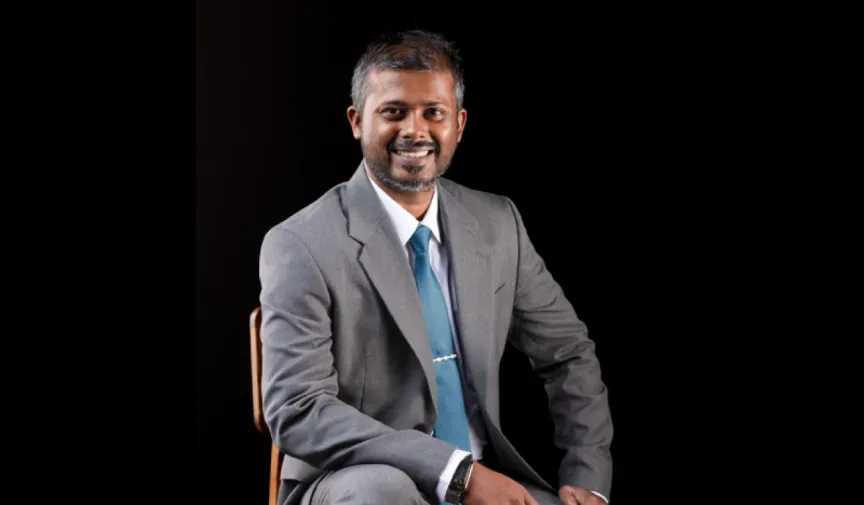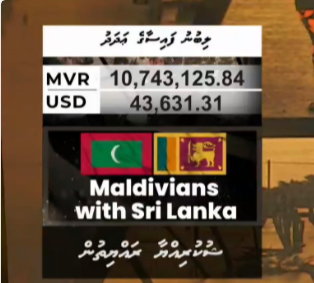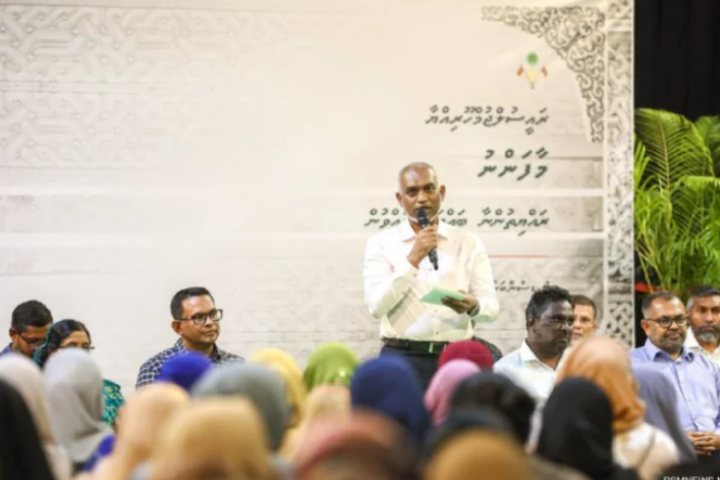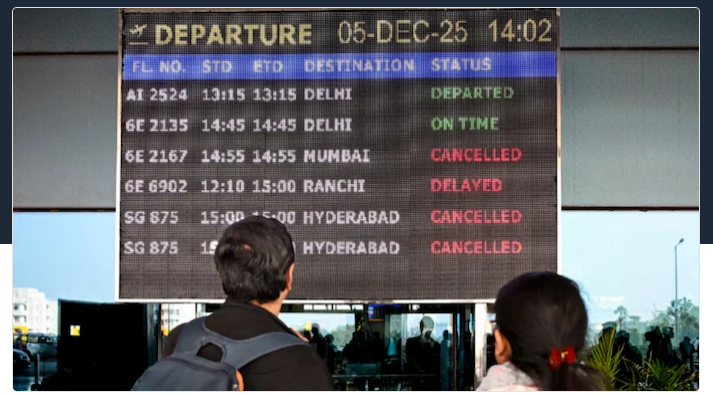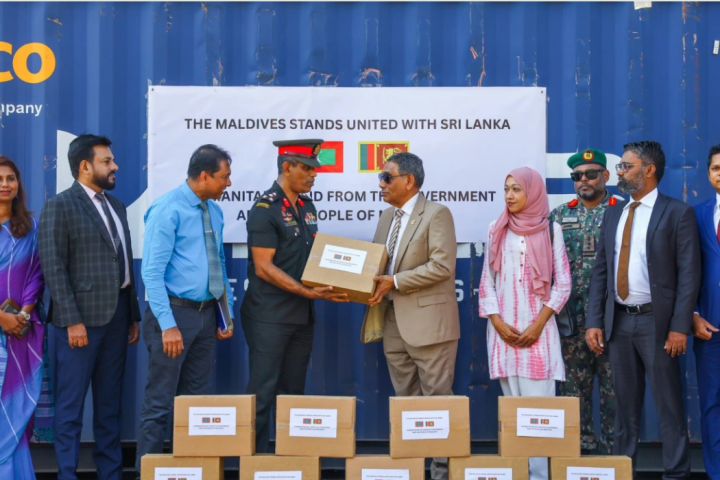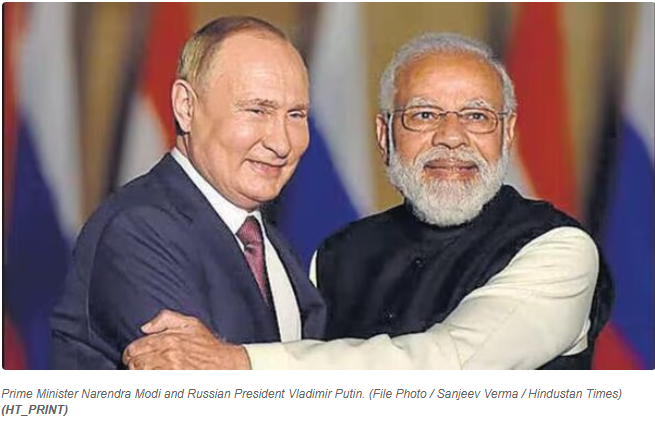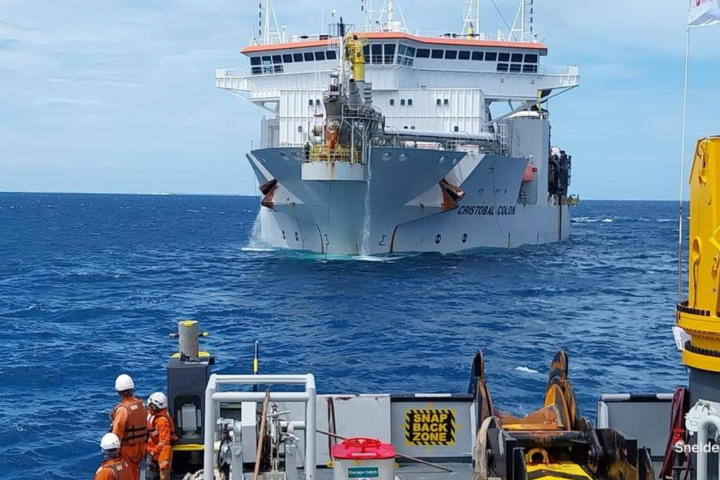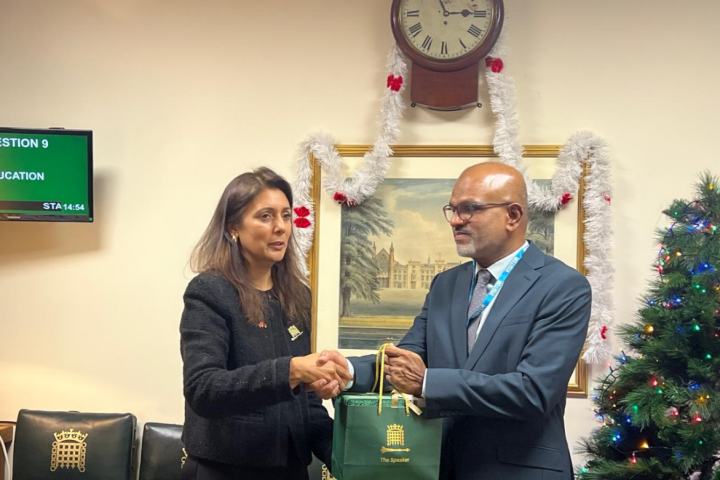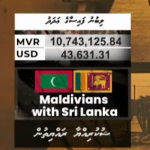Inside the boardrooms of the MMPRC, Tourism Minister Ibrahim Faisal is leading a determined push to win back Indian tourists. But as they work to revive this crucial market, internal tensions within the ranks of the government are complicating their efforts.
On August 9th, Deputy Minister of Transport, Hassan Zihan, ignited a social media firestorm with a single tweet that questioned the nation’s focus on attracting Indian tourists. His words were blunt, resonating with some but sparking outrage among others, particularly as they came just hours before the Indian External Affairs Minister was scheduled to arrive in Malé.
“Could someone please help me understand why we seem to be fixated on attracting the most budget-conscious market, where guests bring their own food and groceries in suitcases to stay in rooms priced at $45 per night?” Zihan tweeted, striking a nerve across the tourism sector. His comments, quoting an interview given by the MMPRC Managing Director about efforts to revive the Indian market, were made public on the very day the government was laying out the red carpet to welcome the Indian External Affairs Minister. The timing of the tweet did more than just ruffle feathers—it exposed deep-seated resentment toward the Maldives’ benevolent neighbor.
The tweet, which quickly gained traction, drew responses from key figures in the industry. Mohamed Firaq, CEO of Inner Maldives and a respected voice in the tourism sector, was among the first to respond. “The Indian market for Maldives resorts and guest houses is highly diverse, making it difficult to generalize,” Firaq tweeted, defending the government’s efforts to cater to a wide spectrum of Indian tourists, from budget travelers to luxury seekers.
Firaq’s response was echoed by others who stressed the importance of India’s role in the Maldives’ tourism industry. Ahmed Mauruf, a former legal advisor to the president, highlighted the economic reality behind the strategy. “Welcoming only one class of guests has never been our strategy,” he tweeted, pointing out that the Maldivian tourism industry has long thrived on its ability to cater to various markets, including the lucrative mid-tier segment that Zihan criticized.
But Zihan’s words weren’t just about tourism—they tapped into a broader, more contentious issue: the Maldives’ relationship with India. Zihan, previously supported by nationalist India Out faction during elections, has been lauded as a protector of the nation’s sovereignty, often positioning himself as a vocal critic of policies perceived as overly accommodating to India. His tweet, seen by many as an extension of this stance, was widely interpreted as an attempt to undermine recent diplomatic efforts by the Maldives’ government.
Minister of Tourism Ibrahim Faisal, who has been leading efforts to revive the Indian market, was reportedly blindsided by Zihan’s remarks. Just days before, Faisal, along with MMPRC Managing Director Ibrahim Shiuree, had concluded a successful roadshow in India, aimed at rekindling interest in the Maldives as a top-tier destination. The roadshow was well-received, with industry insiders noting that the government’s efforts had already begun to show positive results.
“The impact of the Government of Maldives’ efforts was felt even during the roadshow,” one of the organizers remarked, underscoring the significance of the initiative. Yet, Zihan’s tweet, coming just hours before the Indian External Affairs Minister’s visit, risked undoing much of that goodwill, raising questions about internal discord within the Maldivian government.
The reaction on social media was swift and fierce. High-profile figures like Mohamed Firaq continued to voice their concerns, with some accusing Zihan of jeopardizing crucial diplomatic ties. “India’s outbound tourism market is projected to reach USD 55.39 billion by 2034,” tweeted Highrise Issey, a co-founder of Highrise International, noting that the Maldives stands to lose significantly if relations with India sour.
Others were more direct in their criticism. “Implicitly xenophobic and showing intolerance towards a specific group of people is not the way to promote anything,” tweeted Visham, a social media activist, calling out the damaging implications of Zihan’s comments. Meanwhile, Shumba Gong, a political appointee and social media activist, urged Zihan to recognize India’s contribution to the Maldives’ economy and tourism industry.
Adding to the fray, former president’s legal advisor, Maattey, weighed in with a nuanced perspective, reminding Zihan and others that the Maldives is indeed a high-end destination, but one that must cater to diverse markets. “Maldives is a dream destination. And a high-end destination. We have hotels and services for different levels and for different markets,” he tweeted, noting that mid-market tourism, though often overlooked, plays a significant role in the nation’s economy. “At the end of every tax term, you can see mass tourism (with lower room rates) earns us more in total,” Maattey added, highlighting the complex economics of Maldivian tourism.
The discussion did not end there. In a follow-up tweet, Mohamed Firaq revisited the issue, this time drawing on past experiences to caution against repeating old mistakes. “We’ve faced challenges in the past, like when we had to shoot out our own legs, but we’ve learned from those experiences,” he tweeted. His message was clear: the Maldives cannot afford to let internal discord derail its progress, especially when it comes to maintaining vital economic ties with India.
The most pointed criticism, however, came from Ibu Jaleel, who directly linked the decline in Indian tourist arrivals to the actions of certain government officials. “Due to attack by 3 deputy Ministers, Indian tourist arrivals down by 33%,” he tweeted, laying the blame squarely at the feet of those he saw as undermining the country’s efforts to revitalize its tourism sector. His tweet was a stark reminder of the tangible impact that political maneuvering can have on the nation’s economy.
Social media activists also joined the conversation, with Shafga urging Zihan to take a broader view of the situation. “Zihan, you are thinking too shallow. This is schoolboy questions. We are mending a relationship that had gone bad,” she tweeted, emphasizing the diplomatic undercurrents of the issue. Her call for the president to step in and address the situation underscored the growing concern that Zihan’s actions could have far-reaching consequences.
The controversy surrounding Zihan is not new. During mid-July, media reports indicated that Deputy Minister Zihan had voluntarily stepped away from his responsibilities, though the President’s Office clarified that he was not facing any suspension. This statement was made in response to social media rumors that Zihan had been suspended. As of the time of this writing, he is still listed as a deputy minister on the President’s Office website.
Reports suggest that Zihan stepped away after his designation and responsibilities were altered. Prior to his role as Deputy Minister of Transport, Zihan served as a Naval Architect First Lieutenant in the Maldives National Defense Force (MNDF). His appointment to the current government role by President Dr. Mohamed Muizzu followed his vocal criticism of the former administration after his dismissal from the MNDF.
As the debate raged online, the real challenge now lies in managing the fallout. Minister Faisal and his team at MMPRC are making concerted efforts to refocus on strengthening ties with India. With the Maldives’ tourism industry—a vital pillar of the national economy—relying significantly on attracting visitors from key markets like India, the stakes are undeniably high.
In this context, the visit of Indian External Affairs Minister S. Jaishankar underscores the heightened importance of the India-Maldives partnership. Reflecting on the broader implications of the trip, he emphasized in his speech last night, “This visit is an opportunity to take stock of what our countries have achieved together as well as to chart out an aspirational blueprint for the coming years of what we are confident will be a truly multifaceted partnership.” The visit also highlights the critical role of people-to-people contacts in bolstering bilateral relations.
